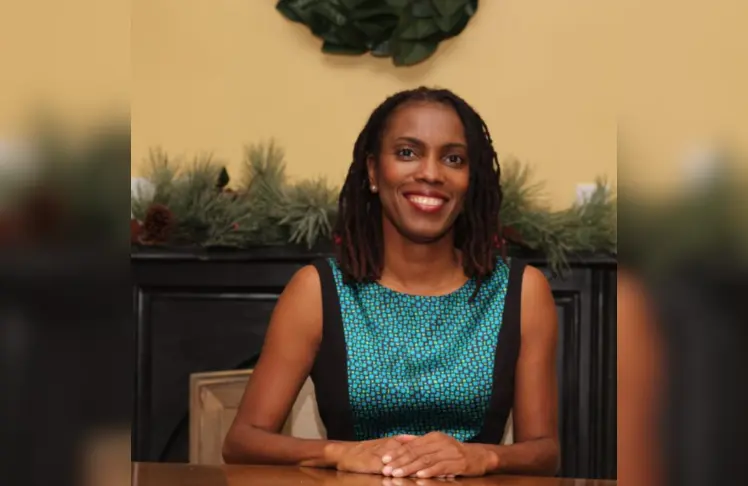
Para leer en español, vea esta traducción de Google Translate.
President Joe Biden said he has caught former President Donald Trump admitting that he wants to cut Social Security and Medicare. The Trump campaign said, in context, Trump was talking about cutting waste and fraud in those programs – not benefits.
There’s some room for disagreement about what Trump may have meant. But Trump has consistently said at other times — not only in this campaign but also as president — that he would not make any cuts to Social Security and Medicare benefits.
However, even assuming Trump meant to say that he planned to solve the financial predicament faced by Social Security and Medicare by combating waste, fraud and abuse, experts say that wouldn’t do much to fix the long-term finances of those programs.
First, here is what Trump said in an interview with CNBC’s Joe Kernen. We bolded the part that Biden and his campaign have highlighted.
Kernen, March 11: There are stark policy differences, obviously, Mr. President, but one thing that I think that at least the perception is that there’s not a whole lot of difference between what you think we should do with entitlements or non-discretionary spending and what President Biden is proposing. It’s almost a third rail of politics. And we’ve got to what a $33, $34 trillion total debt built up and very little we can do in terms of cutting spending. Discretionary is not going to help. Have you changed your, your outlook on how to handle entitlements Social Security, Medicare, Medicaid, Mr. President? Seems like something has to be done, or else we’re going to be stuck at 120% of debt-to-GDP forever.
Trump: So first of all, there is a lot you can do in terms of entitlements in terms of cutting and in terms of also the theft and the bad management of entitlements, tremendous bad management of entitlements. There’s tremendous amounts of things and numbers of things you can do. So I don’t necessarily agree with the statement. I know that they’re going to end up weakening Social Security because the country is weak.
Later that day, on X, Biden posted a clip of the interview, ending with Trump saying, “So first of all, there is a lot you can do in terms of entitlements in terms of cutting.” Biden commented, “Not on my watch.”
And on March 12, Biden again posted that audio clip. The tweet from Biden said, “I watched the clip of Trump proposing cuts to Social Security and Medicare. I won’t let Trump take seniors’ hard-earned benefits to give tax breaks to his wealthy friends.”
The following day, during a speech in Wisconsin, Biden promised not to cut Social Security and Medicare, and criticized Trump for his recent remarks. “You know, just this week Donald Trump said cuts to Social Security and Medicare are on the table,” Biden said. “When asked if he’d change his position, he said, quote, ‘There’s a lot we can do in terms of cutting. Tremendous amount of things we can do,’ end of quote.”
But it wasn’t “end of quote,” as Trump’s full response above shows.
The Trump campaign responded with a post on X that said, “If you losers didn’t cut his answer short, you would know President Trump was talking about cutting waste.” The post includes a clip of the Trump interview that extends all the way to him saying, “So I don’t necessarily agree with the statement.”
The Washington Post noted that the Trump campaign also sent out an email blast headlined “President Trump Reiterates Protecting Entitlements Like Social Security and Medicare; Would Get Rid of Waste and Fraud.” Trump campaign spokesman Steven Cheung told MarketWatch, “The transcript of his answer … clearly states he did not say anything about cutting entitlements.”
In an interview with Breitbart on March 13, Trump said, “I will never do anything that will jeopardize or hurt Social Security or Medicare. We’ll have to do it elsewhere. But we’re not going to do anything to hurt them.”
“There’s so many things we can do,” Trump said. “There’s so much cutting and so much waste in so many other areas, but I’ll never do anything to hurt Social Security.”
There are aspects of Trump’s comments that support the interpretations of both campaigns.
Trump said there is “a lot to do” with entitlements “in terms of cutting and in terms of also the theft and the bad management of entitlements.” The word “also” suggests he was talking about “theft and bad management” in addition to cutting entitlement programs.
However, it’s also true that Trump frequently says on the campaign trail that he would protect the programs, as he did at an event in Georgia on March 9 two days before the CNBC interview. “As I said, for many years, I will always protect Medicare and Social Security,” Trump said.
Back when Florida Gov. Ron DeSantis and former U.N. Ambassador Nikki Haley were still in the Republican primary, Trump would often criticize them for saying they would raise the eligibility age for Social Security — and as we have written, Trump sometimes got his facts wrong when doing so.
During Biden’s State of the Union address, Trump posted on Truth Social, “Republicans have no plan to cut Social Security, a made up story by Crooked Joe!” As we wrote, some Republicans — though not Trump — have proposed raising the retirement age for some future beneficiaries. That would reduce scheduled benefits for those affected, and therefore is considered by budget experts to be a cut of the program.
When House Republicans in early 2023 began to debate among themselves how to reduce government spending, Trump warned them not to include any cuts to Social Security or Medicare.
“Under no circumstances should Republicans vote to cut a single penny from Medicare or Social Security to help pay for Joe Biden’s reckless spending spree,” Trump said in a video posted to Truth Social on Jan. 20. Trump listed “waste fraud and abuse” as one potential area to cut the budget. He added, “But do not cut the benefits our seniors worked for and paid for their entire lives. Save Social Security. Don’t destroy it.”
Waste, Fraud and Abuse
Kernen was correct that Social Security, Medicare and Medicaid finances are problematic.
Unless the program is changed or new revenues are raised, the reserves of the Social Security trust fund related to the retirement portion of the program are projected to become depleted in 2033. At that time the program would only have enough income to pay 77% of scheduled retirement benefits, according to the latest report from the trustees overseeing the program.
Likewise, trustees of the Medicare trust funds warn that future expenditures will increasingly outpace workers’ earnings or the projected growth in the economy, such that the trust fund reserves for Part A, which covers hospital expenses, will be deleted in 2031. At that time, revenues would cover just 89% of program costs.
The trustees estimate that under current policies, the Social Security retirement and disability programs will amass a $22.4 trillion shortfall over the next 75 years. The Medicare trustees estimate a $4.4 trillion shortfall over that same time.
Trump has been saying all the way back to when he first became a candidate for president that he would solve Social Security and Medicare funding gaps by tackling waste, fraud and abuse in the programs. “Save Medicare, Medicaid and Social Security without cuts. Have to do it,” Trump said at the June 2015 announcement of his presidential candidacy. “Get rid of the fraud. Get rid of the waste and abuse, but save it.”
But experts told us there’s simply not enough waste, fraud and abuse in the programs to solve their financial challenges.
“First: you can’t fix Social Security’s finances simply by attacking waste, fraud and abuse,” Charles Blahous, a senior research strategist at the Mercatus Center at George Mason University, told us via email. “Social Security is an extraordinarily efficient program, with extremely low administrative costs. Social Security faces a massive funding shortfall, not because of improper payments or administrative waste, but because its scheduled benefits far exceed the amount that worker tax contributions can actually fund.
“For perspective, consider that Social Security’s financing shortfall equates to more than 21% of scheduled benefits over the next 75 years, while its administrative cost rate is roughly 0.5% of expenses.
“Medicaid is a different story,” Blahous said, where “improper payments” are “a significant problem.”
“Medicare is somewhere in the middle,” he said. “Improper payments are a serious concern in Medicare as well, perhaps one-third to one-half as bad as they are in Medicaid. But Medicare’s financing challenges are so large that they can’t be solved purely by attacking waste and fraud. For perspective, consider my finding that nearly half of the long-term federal fiscal imbalance is due to excess Medicare cost growth alone. That can’t be fixed without taxpayers, healthcare providers and beneficiaries (at least high-income beneficiaries) all contributing to the solution.”
In 2016, the Committee for a Responsible Federal Budget wrote that all improper payments from Social Security, including payments to the deceased and the very old, were estimated to be about $3 billion per year. Given that Social Security benefits that year exceeded $900 billion, eliminating all improper payments would have reduced costs “by at most 0.4 percent, extending the program’s solvency by about 3 months.”
“Social Security cannot be meaningfully fixed with waste, fraud and abuse, as per our post,” Marc Goldwein, senior vice president and senior policy director for the nonpartisan Committee for a Responsible Federal Budget, told us in an email.
“Medicare is a different story,” Goldwein said. “There are a tremendous amount of overpayments to providers and insurance companies that one could regard as ‘waste’ and are sometimes connected to fraud and abuse. We could save a tremendous amount of money by reducing these excessive payments.”
As president, of course, Trump had four years to try to eliminate waste, fraud and abuse. And his proposed budgets sought to make some headway. But again, just addressing waste, fraud and abuse will not solve the long-term finances of Social Security and Medicare.
As president, Trump proposed budgets that included significant reductions in future Medicare spending. But as we wrote, experts told us the proposals included bipartisan ideas also supported by former President Barack Obama. CRFB said the Medicare proposals “represent reductions in costs not cuts to benefits.”
Trump did not propose cuts to Social Security retirement benefits — including the age of eligibility for benefits — but, as we wrote, his budgets did call for changes to disability benefits that would translate to cuts for some beneficiaries.
Editor’s note: FactCheck.org does not accept advertising. We rely on grants and individual donations from people like you. Please consider a donation. Credit card donations may be made through our “Donate” page. If you prefer to give by check, send to: FactCheck.org, Annenberg Public Policy Center, 202 S. 36th St., Philadelphia, PA 19104.
Source








